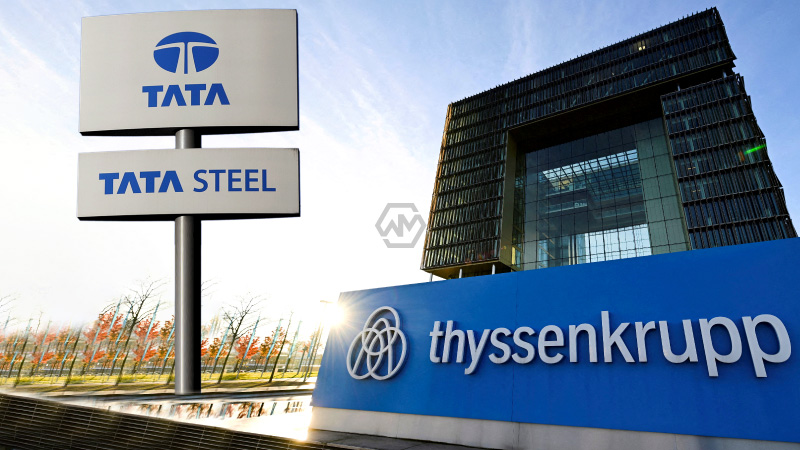- Thyssenkrupp’s joint venture with Tata Steel aimed to create Europe’s second-largest steelmaker.
- The CJEU upheld the European Commission‘s 2019 veto due to concerns over price hikes.
- Thyssenkrupp argues the EU did not fully consider ongoing challenges in the steel industry.
In a significant setback, Thyssenkrupp’s appeal to overturn the European Commission’s antitrust veto of its proposed joint venture with Tata Steel has been dismissed by the CJEU.
The European Commission had blocked the deal in 2019, citing concerns that the merger would reduce competition and result in higher prices for essential steel products.
CJEU Upholds EU Antitrust Block on Thyssenkrupp-Tata Steel Merger
Thyssenkrupp expressed its disappointment, stating that the EU failed to account for the challenges currently facing the steel industry, such as global overcapacity and increasing costs. Despite this defeat, the company said it would review the court’s decision to assess its next steps, although it remains firm in its stance that collaboration with Tata Steel was a strategic move to address long-term issues in the sector.
The European Commission’s stance has been consistent, emphasizing the need to protect smaller businesses and customers from potential negative effects that could arise from the consolidation of major players in the steel market. Thyssenkrupp, which has struggled financially in recent years, viewed the joint venture as a crucial step in restructuring and strengthening its core steel business.
Thyssenkrupp remains critical of the ruling, pointing out that the European steel market faces systemic challenges that require large-scale collaborations to remain competitive globally. The German conglomerate argued that the EU’s rejection of the deal did not sufficiently take into account the rapidly changing dynamics of the global steel industry, such as rising raw material costs and mounting pressure from international competitors.
Despite the loss, Thyssenkrupp continues to search for other ways to adapt to the evolving landscape of the European steel market. The company’s leadership expressed disappointment but noted that the outcome would not deter them from exploring new strategies to address their financial challenges and enhance their competitiveness.
Thyssenkrupp’s legal defeat underscores the challenges facing the steel industry in Europe, where regulatory concerns about competition and pricing are paramount. The ruling could also impact future consolidation efforts in the sector, signaling that industrial giants must navigate strict antitrust scrutiny in their pursuit of strategic partnerships.
“The steel industry is in dire need of consolidation, but this ruling shows that the competition authorities still prioritize consumer protection over market restructuring.”



